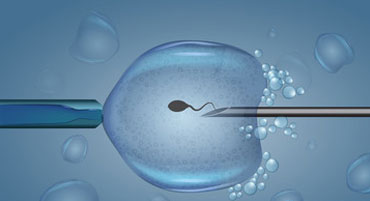
ICSI IVF Treatment
What is IVF?
In Vitro Fertilization (IVF) is an advanced treatment that assists the process of egg fertilization and implantation using the latest medical technology and treatments. The process consists of stimulating egg production, retrieving viable eggs, fertilizing them with sperm in a lab setting, and then transferring embryo to the mother who will carry them through pregnancy.
In-vitro Fertilization(IVF) is the most efficient type of assisted reproductive technology. The procedure can be performed with the couple’s own eggs and sperm. Alternatively, eggs, sperm, or embryos from a known or anonymous donor may be used in IVF. A gestational carrier, who has an embryo implanted in her uterus, may be used in some cases.
Every time a woman undergoes an IVF cycle, she has a 1 in 5 chance of becoming pregnant and having a baby. Women under the age of 35 have a higher chance, while older women have a lower chance, which decreases with age. By the age of 44, the chances of success are less than 1 in 5.
What is ICSI?
Intracytoplasmic Sperm Injection (ICSI) is an advanced assisted reproductive technology (ART) in many cases of male infertility. The first being IVF – the ICSI represented the second major advance in modern fertility treatment because it enabled fertility specialists to directly address the problem of male factor infertility.
The ICSI process directly introduces an individual sperm into each of the eggs obtained during the IVF process. The resulting embryo is then transferred to the uterus to establish a pregnancy.
If your partner is experiencing any of the issues listed below, please contact one of our doctors right away.
- Because of a blockage, there are no sperm in the sperm.
- Low sperm count or poor sperm quality
- Sperm form and mobility are abnormal.
- Sperms are unable to penetrate the egg and fertilize it successfully.
These and other factors could be the reason you’re experiencing the misery of unsuccessful pregnancy.



